#HAP: Hungary
Explore tagged Tumblr posts
Text
I need your help, Hetalia community!
A long time ago, in a place far far away, when Tumblr was full of erotica fanarts and authors hadn't migrated to Twitter...
It was 10, years ago, or something like that. I have saved on my phone one comic-answer from a Hetalia ask blog just to look up for the author later...
Time has passed, I'm a full grown adult now (26 y.o) and while surfing on my Google photo account I have found this mini-comics... Totally forgotten in space and time. And I decided that I need to finish this task! I need to find an ask or an author of this art. But Tumblr is foreign and alien place for me now, so I need any help in this search.
What do I know:
- It was an Ask.
- Probably Hetalia themed.
- There are definitely Belgium and Hungary in this ask. (But I can't be sure that the author ship them like I did (and still do).
I added images from that answer (maybe the author sees themselves and comes to yell at me for reposting, it can work too), but I'll delete them after completing this mission!



#hetalia#hungary#belgium#HAP: Hungary#HAP: Belgium#help me hetalia community#belhun#hunbel#belhung#hungbel
15 notes
·
View notes
Photo
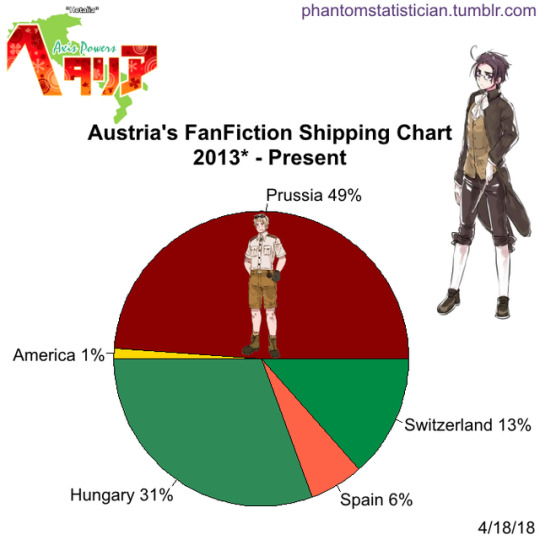
Fandom: Hetalia: Axis Powers
Character: Austria
Sample Size: 438 stories
*See FAQ and/or Guidelines for more details regarding time
#austria#prussia#hungary#switzerland#spain#america#hetalia#hetalia axis powers#hap#fanfiction#statistics#phantom statistician
98 notes
·
View notes
Photo
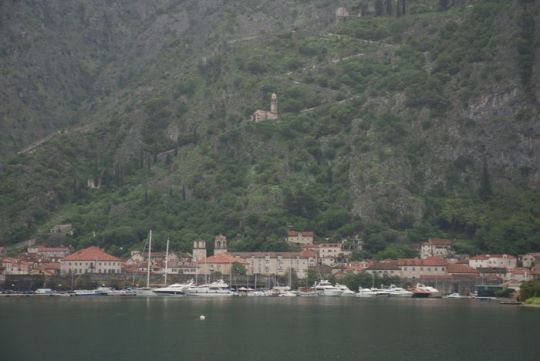
Bulgarians and Albanians
The measures necessary to Verbize the regions were undertaken through the schools and churches; “ disaffected ” Bulgarians and Albanians were driven out by thousands, their land being occupied by Serbs. This firm policy in domestic matters was paralleled by a vigorous policy in foreign affairs, directed toward strengthening Serbia against the enemy across the Danube who by the erection of the independent state of Albania had prevented the realization of Serbian hopes of access to the sea. The fine statesmanship of the premier, M. Pashitch, secured the passage by the Skupshtina of a bill authorizing the government to conclude a treaty with Montenegro forming a military, diplomatic, and customs union between the two countries. He strengthened the cordial understanding with Greece by the support he gave in her controversy with Turkey, and secured a commercial treaty which gave Serbian commerce considerable advantages in using the port of Saloniki. He concluded an agreement with Rumania for the building of a great bridge across the Danube better to improve communication and commerce between the two countries. In preparation for the struggle with Austria-Hungary which he was anxious to avoid but which seemed inevitable, he leaned more and more upon Russia. Serbia was justly regarded as the point of Russian influence in the Balkans.
Narodna Obrana
The constructive work of M. Pashitch was much impeded by the military clique whose prestige and arrogance had been largely increased by the success of the army in the Balkan wars. Army officers were most influential in the Narodna Obrana (National Union) which conducted Pan-Serbian conspiracies in Bosnia and Herzegovina with the aim of uniting them to “ Mother ” Serbia. This agitation was particularly obnoxious to the Austro-Hungarian heir-apparent, the Archduke Franz Ferdinand, who was a real friend of the Slavs of the Dual Monarchy. He was known to favor the organization of the Haps- burg dominions into a federal empire instead of a dual monarchy in order to place the Slavs upon an equal footing with the Germans and the Magyars. Hence his very efforts to conciliate the discontented Slavs within the empire made him a dangerous enemy to the Pan-Serbian cause. Moreover, he was hated by the Serbians as the instigator of the coup of 1908, whereby Bosnia and Herzegovina were annexed to Austria- Hungary, and he was known to favor for the Dual Monarchy a vigorous foreign policy which included spreading Austro- Hungarian influence in the Balkans.
1 note
·
View note
Text
How To Say 'Thank You' In 20 Languages?

Thank You in Different Language In English, we use thank you all the time and even have special times of the year when we emphasize how thankful we are (i.e., at Thanksgiving). However, there are so many other ways to say thank you across cultures—here are 20 of them! Arigatou (Japan) Arigatou is a Japanese word that can be translated to English as Thank you. This word is used in a wide variety of contexts, but it is most commonly used when somebody has done something for you, or when you appreciate something. It can also be used as an expression of gratitude or thanks. One way to say thank you in Japanese is by saying arigatou gozaimasu. A similar phrase in Indonesian is terima kasih atau terima kasih sekali lagi. In Malaysia, the equivalent term is terima kasih. In Armenian and some other languages, eskerrik asko means thank you. Many people around the world learn another language because they want to experience another culture and meet new people. Basic understanding of a foreign language can take many years to achieve. A foreign language like English may be difficult to learn because there are so many rules and exceptions to those rules that are difficult for a learner who doesn't speak English natively. Gracias (Spain & Latin America) Gracias is a Latin American word that means thank you in Spanish. It's also used in many other countries, including Spain and Latin America. This word can be used for both formal and informal situations, so it's not necessary to switch to another word if you want to be more formal or less formal. Gracias is one of the most widely-used Spanish words by native speakers, so it would be a good choice for language learners to learn. The way this word is pronounced will depend on where you are in the world, but it is often said with an s at the end (rather than an x). Hvala vam (Slovenia) Kop khun krup hap thai nok (Thailand) Terima Kasih (Malaysia) España gracias: España gracias is what Spaniards say when they're thanking someone. For example, Muy agradecido con tu ayuda would mean I'm very grateful for your help. Gracies es un buen lugar para aprender el español si estás empezando porque es muy común en la cultura hispana y tiene diferentes usos sociales. Köszönöm (Köszi) (Hungary, Croatia, etc.) Köszönöm is used in Hungarian, Croatian and some other languages of Hungary's former territories. The word literally means I thank. In Russian and Bulgarian this word can be translated as Благодарю which means Thank you. In Serbian, Bosnian, Macedonian and Slovenian it translates to Hvala, meaning Thanks. To express your gratitude in Irish Gaelic, say Maith thú or Má tá go maith agat. The latter is more formal. To say thanks in Esperanto use Ĝis la revido! Which translates to See you soon! Polish uses Dziękuję za pomoc, Turkish- Bizimle olmayı unutma, French - Merci de votre aide Xie xie (China, Singapore, Indonesia, Vietnam, Hong Kong, Taiwan & Malaysia) Xie xie is a term of gratitude that is used in Singapore, Indonesia, Vietnam, Taiwan, and Malaysia. It means thank you or thank you very much. The term can be spelled as 万岁(Wànsuì) in Chinese characters. Xie xie can also be translated to thank you very much in English. Some people may also say teşekkür ederim which translates to thank you from Turkey. Turkish speakers often use this phrase for any type of thanks, whether it's for kindness shown towards them or if they are showing appreciation for someone else's accomplishment. Turkish speakers will also sometimes use terima kasih which has similar meanings to thank you in Indonesian and Malay. Some languages may have different ways of thanking someone, but they all have one thing in common: expressing their immense gratitude with some form of expression. Know the different languages spoken in China. Shukran (Khoda Hafez, شكرا هدایتزمشی ) (Arabic countries & Iran) Thanks is Arabic for Shukran, in Arabic culture and languages it is used as a universal word to express gratitude. شكرا هدایتزمشی له من و لديه من (Shukran Hoda zamshid minna walideena) translates to: Thank you, may God repay you with good in English. Shukran means thank you in the Lebanese dialect of Arabic, and it’s also common across other Arab countries like Oman, Qatar, UAE and Syria. In Iran, they use the same word Shukran but pronounce it slightly differently. It is still translated to thank you though and pronounced more similarly to shaw-kra-nahn. Many Indonesians know Terima Kasih which means thank you or thanks very much, thanks a lot. For Malaysian speakers, say terima kasih which also has the meaning of thanks very much or thanks so much. If someone says this phrase back to them then they should reply with terima kasih juga or terima kasih pun juga which both mean you're welcome. English speakers can say thank you by just saying the words thankyou while female speakers could say please and thank you at different points in time during an interaction when thanking someone. Arigato gozaimasu (Domo arigato) (Thank you very much) (Japan, China, Korea & Philippines) Arigato gozaimasu (Domo arigato) is a very polite expression for saying thank you in Japanese. It literally means Thank you very much and is considered to be one of the most polite expressions that can be used. The Chinese version of this phrase, thank you very much, uses both characters: 很感谢你。 The Korean version, 고맙습니다, shares more or less the same meaning as Arigato gozaimasu. Lastly, Terima Kasih can also mean thank you in Indonesia and Malaysia. FAQ'S The word for thank you in Canada is merci. To say thank you very much in French, you would say merci beaucoup.Danke means Thank you in German.In English, we often say thank you to show our gratitude. Read the full article
1 note
·
View note
Photo

Bulgarians and Albanians
The measures necessary to Verbize the regions were undertaken through the schools and churches; “ disaffected ” Bulgarians and Albanians were driven out by thousands, their land being occupied by Serbs. This firm policy in domestic matters was paralleled by a vigorous policy in foreign affairs, directed toward strengthening Serbia against the enemy across the Danube who by the erection of the independent state of Albania had prevented the realization of Serbian hopes of access to the sea. The fine statesmanship of the premier, M. Pashitch, secured the passage by the Skupshtina of a bill authorizing the government to conclude a treaty with Montenegro forming a military, diplomatic, and customs union between the two countries. He strengthened the cordial understanding with Greece by the support he gave in her controversy with Turkey, and secured a commercial treaty which gave Serbian commerce considerable advantages in using the port of Saloniki. He concluded an agreement with Rumania for the building of a great bridge across the Danube better to improve communication and commerce between the two countries. In preparation for the struggle with Austria-Hungary which he was anxious to avoid but which seemed inevitable, he leaned more and more upon Russia. Serbia was justly regarded as the point of Russian influence in the Balkans.
Narodna Obrana
The constructive work of M. Pashitch was much impeded by the military clique whose prestige and arrogance had been largely increased by the success of the army in the Balkan wars. Army officers were most influential in the Narodna Obrana (National Union) which conducted Pan-Serbian conspiracies in Bosnia and Herzegovina with the aim of uniting them to “ Mother ” Serbia. This agitation was particularly obnoxious to the Austro-Hungarian heir-apparent, the Archduke Franz Ferdinand, who was a real friend of the Slavs of the Dual Monarchy. He was known to favor the organization of the Haps- burg dominions into a federal empire instead of a dual monarchy in order to place the Slavs upon an equal footing with the Germans and the Magyars. Hence his very efforts to conciliate the discontented Slavs within the empire made him a dangerous enemy to the Pan-Serbian cause. Moreover, he was hated by the Serbians as the instigator of the coup of 1908, whereby Bosnia and Herzegovina were annexed to Austria- Hungary, and he was known to favor for the Dual Monarchy a vigorous foreign policy which included spreading Austro- Hungarian influence in the Balkans.
0 notes
Photo
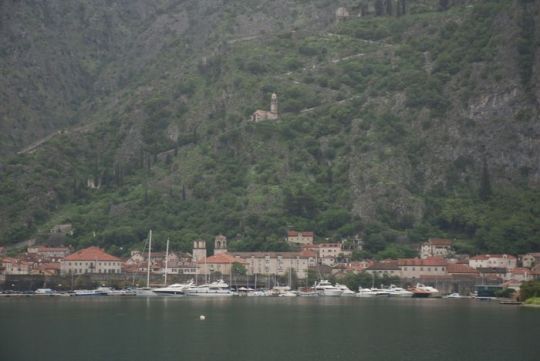
Bulgarians and Albanians
The measures necessary to Verbize the regions were undertaken through the schools and churches; “ disaffected ” Bulgarians and Albanians were driven out by thousands, their land being occupied by Serbs. This firm policy in domestic matters was paralleled by a vigorous policy in foreign affairs, directed toward strengthening Serbia against the enemy across the Danube who by the erection of the independent state of Albania had prevented the realization of Serbian hopes of access to the sea. The fine statesmanship of the premier, M. Pashitch, secured the passage by the Skupshtina of a bill authorizing the government to conclude a treaty with Montenegro forming a military, diplomatic, and customs union between the two countries. He strengthened the cordial understanding with Greece by the support he gave in her controversy with Turkey, and secured a commercial treaty which gave Serbian commerce considerable advantages in using the port of Saloniki. He concluded an agreement with Rumania for the building of a great bridge across the Danube better to improve communication and commerce between the two countries. In preparation for the struggle with Austria-Hungary which he was anxious to avoid but which seemed inevitable, he leaned more and more upon Russia. Serbia was justly regarded as the point of Russian influence in the Balkans.
Narodna Obrana
The constructive work of M. Pashitch was much impeded by the military clique whose prestige and arrogance had been largely increased by the success of the army in the Balkan wars. Army officers were most influential in the Narodna Obrana (National Union) which conducted Pan-Serbian conspiracies in Bosnia and Herzegovina with the aim of uniting them to “ Mother ” Serbia. This agitation was particularly obnoxious to the Austro-Hungarian heir-apparent, the Archduke Franz Ferdinand, who was a real friend of the Slavs of the Dual Monarchy. He was known to favor the organization of the Haps- burg dominions into a federal empire instead of a dual monarchy in order to place the Slavs upon an equal footing with the Germans and the Magyars. Hence his very efforts to conciliate the discontented Slavs within the empire made him a dangerous enemy to the Pan-Serbian cause. Moreover, he was hated by the Serbians as the instigator of the coup of 1908, whereby Bosnia and Herzegovina were annexed to Austria- Hungary, and he was known to favor for the Dual Monarchy a vigorous foreign policy which included spreading Austro- Hungarian influence in the Balkans.
1 note
·
View note
Photo
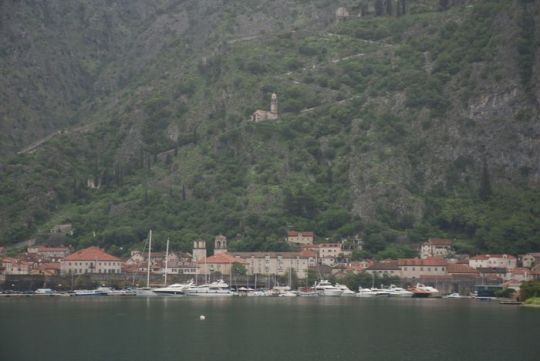
Bulgarians and Albanians
The measures necessary to Verbize the regions were undertaken through the schools and churches; “ disaffected ” Bulgarians and Albanians were driven out by thousands, their land being occupied by Serbs. This firm policy in domestic matters was paralleled by a vigorous policy in foreign affairs, directed toward strengthening Serbia against the enemy across the Danube who by the erection of the independent state of Albania had prevented the realization of Serbian hopes of access to the sea. The fine statesmanship of the premier, M. Pashitch, secured the passage by the Skupshtina of a bill authorizing the government to conclude a treaty with Montenegro forming a military, diplomatic, and customs union between the two countries. He strengthened the cordial understanding with Greece by the support he gave in her controversy with Turkey, and secured a commercial treaty which gave Serbian commerce considerable advantages in using the port of Saloniki. He concluded an agreement with Rumania for the building of a great bridge across the Danube better to improve communication and commerce between the two countries. In preparation for the struggle with Austria-Hungary which he was anxious to avoid but which seemed inevitable, he leaned more and more upon Russia. Serbia was justly regarded as the point of Russian influence in the Balkans.
Narodna Obrana
The constructive work of M. Pashitch was much impeded by the military clique whose prestige and arrogance had been largely increased by the success of the army in the Balkan wars. Army officers were most influential in the Narodna Obrana (National Union) which conducted Pan-Serbian conspiracies in Bosnia and Herzegovina with the aim of uniting them to “ Mother ” Serbia. This agitation was particularly obnoxious to the Austro-Hungarian heir-apparent, the Archduke Franz Ferdinand, who was a real friend of the Slavs of the Dual Monarchy. He was known to favor the organization of the Haps- burg dominions into a federal empire instead of a dual monarchy in order to place the Slavs upon an equal footing with the Germans and the Magyars. Hence his very efforts to conciliate the discontented Slavs within the empire made him a dangerous enemy to the Pan-Serbian cause. Moreover, he was hated by the Serbians as the instigator of the coup of 1908, whereby Bosnia and Herzegovina were annexed to Austria- Hungary, and he was known to favor for the Dual Monarchy a vigorous foreign policy which included spreading Austro- Hungarian influence in the Balkans.
0 notes
Photo

Bulgarians and Albanians
The measures necessary to Verbize the regions were undertaken through the schools and churches; “ disaffected ” Bulgarians and Albanians were driven out by thousands, their land being occupied by Serbs. This firm policy in domestic matters was paralleled by a vigorous policy in foreign affairs, directed toward strengthening Serbia against the enemy across the Danube who by the erection of the independent state of Albania had prevented the realization of Serbian hopes of access to the sea. The fine statesmanship of the premier, M. Pashitch, secured the passage by the Skupshtina of a bill authorizing the government to conclude a treaty with Montenegro forming a military, diplomatic, and customs union between the two countries. He strengthened the cordial understanding with Greece by the support he gave in her controversy with Turkey, and secured a commercial treaty which gave Serbian commerce considerable advantages in using the port of Saloniki. He concluded an agreement with Rumania for the building of a great bridge across the Danube better to improve communication and commerce between the two countries. In preparation for the struggle with Austria-Hungary which he was anxious to avoid but which seemed inevitable, he leaned more and more upon Russia. Serbia was justly regarded as the point of Russian influence in the Balkans.
Narodna Obrana
The constructive work of M. Pashitch was much impeded by the military clique whose prestige and arrogance had been largely increased by the success of the army in the Balkan wars. Army officers were most influential in the Narodna Obrana (National Union) which conducted Pan-Serbian conspiracies in Bosnia and Herzegovina with the aim of uniting them to “ Mother ” Serbia. This agitation was particularly obnoxious to the Austro-Hungarian heir-apparent, the Archduke Franz Ferdinand, who was a real friend of the Slavs of the Dual Monarchy. He was known to favor the organization of the Haps- burg dominions into a federal empire instead of a dual monarchy in order to place the Slavs upon an equal footing with the Germans and the Magyars. Hence his very efforts to conciliate the discontented Slavs within the empire made him a dangerous enemy to the Pan-Serbian cause. Moreover, he was hated by the Serbians as the instigator of the coup of 1908, whereby Bosnia and Herzegovina were annexed to Austria- Hungary, and he was known to favor for the Dual Monarchy a vigorous foreign policy which included spreading Austro- Hungarian influence in the Balkans.
0 notes
Photo

Bulgarians and Albanians
The measures necessary to Verbize the regions were undertaken through the schools and churches; “ disaffected ” Bulgarians and Albanians were driven out by thousands, their land being occupied by Serbs. This firm policy in domestic matters was paralleled by a vigorous policy in foreign affairs, directed toward strengthening Serbia against the enemy across the Danube who by the erection of the independent state of Albania had prevented the realization of Serbian hopes of access to the sea. The fine statesmanship of the premier, M. Pashitch, secured the passage by the Skupshtina of a bill authorizing the government to conclude a treaty with Montenegro forming a military, diplomatic, and customs union between the two countries. He strengthened the cordial understanding with Greece by the support he gave in her controversy with Turkey, and secured a commercial treaty which gave Serbian commerce considerable advantages in using the port of Saloniki. He concluded an agreement with Rumania for the building of a great bridge across the Danube better to improve communication and commerce between the two countries. In preparation for the struggle with Austria-Hungary which he was anxious to avoid but which seemed inevitable, he leaned more and more upon Russia. Serbia was justly regarded as the point of Russian influence in the Balkans.
Narodna Obrana
The constructive work of M. Pashitch was much impeded by the military clique whose prestige and arrogance had been largely increased by the success of the army in the Balkan wars. Army officers were most influential in the Narodna Obrana (National Union) which conducted Pan-Serbian conspiracies in Bosnia and Herzegovina with the aim of uniting them to “ Mother ” Serbia. This agitation was particularly obnoxious to the Austro-Hungarian heir-apparent, the Archduke Franz Ferdinand, who was a real friend of the Slavs of the Dual Monarchy. He was known to favor the organization of the Haps- burg dominions into a federal empire instead of a dual monarchy in order to place the Slavs upon an equal footing with the Germans and the Magyars. Hence his very efforts to conciliate the discontented Slavs within the empire made him a dangerous enemy to the Pan-Serbian cause. Moreover, he was hated by the Serbians as the instigator of the coup of 1908, whereby Bosnia and Herzegovina were annexed to Austria- Hungary, and he was known to favor for the Dual Monarchy a vigorous foreign policy which included spreading Austro- Hungarian influence in the Balkans.
0 notes
Photo
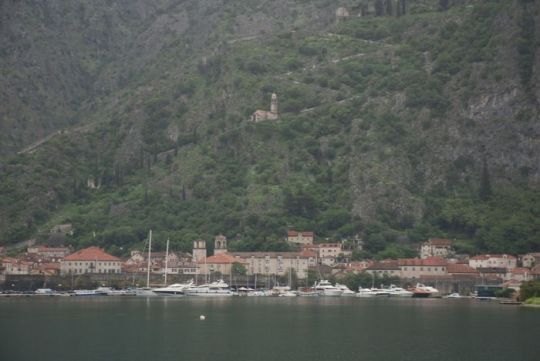
Bulgarians and Albanians
The measures necessary to Verbize the regions were undertaken through the schools and churches; “ disaffected ” Bulgarians and Albanians were driven out by thousands, their land being occupied by Serbs. This firm policy in domestic matters was paralleled by a vigorous policy in foreign affairs, directed toward strengthening Serbia against the enemy across the Danube who by the erection of the independent state of Albania had prevented the realization of Serbian hopes of access to the sea. The fine statesmanship of the premier, M. Pashitch, secured the passage by the Skupshtina of a bill authorizing the government to conclude a treaty with Montenegro forming a military, diplomatic, and customs union between the two countries. He strengthened the cordial understanding with Greece by the support he gave in her controversy with Turkey, and secured a commercial treaty which gave Serbian commerce considerable advantages in using the port of Saloniki. He concluded an agreement with Rumania for the building of a great bridge across the Danube better to improve communication and commerce between the two countries. In preparation for the struggle with Austria-Hungary which he was anxious to avoid but which seemed inevitable, he leaned more and more upon Russia. Serbia was justly regarded as the point of Russian influence in the Balkans.
Narodna Obrana
The constructive work of M. Pashitch was much impeded by the military clique whose prestige and arrogance had been largely increased by the success of the army in the Balkan wars. Army officers were most influential in the Narodna Obrana (National Union) which conducted Pan-Serbian conspiracies in Bosnia and Herzegovina with the aim of uniting them to “ Mother ” Serbia. This agitation was particularly obnoxious to the Austro-Hungarian heir-apparent, the Archduke Franz Ferdinand, who was a real friend of the Slavs of the Dual Monarchy. He was known to favor the organization of the Haps- burg dominions into a federal empire instead of a dual monarchy in order to place the Slavs upon an equal footing with the Germans and the Magyars. Hence his very efforts to conciliate the discontented Slavs within the empire made him a dangerous enemy to the Pan-Serbian cause. Moreover, he was hated by the Serbians as the instigator of the coup of 1908, whereby Bosnia and Herzegovina were annexed to Austria- Hungary, and he was known to favor for the Dual Monarchy a vigorous foreign policy which included spreading Austro- Hungarian influence in the Balkans.
0 notes
Photo
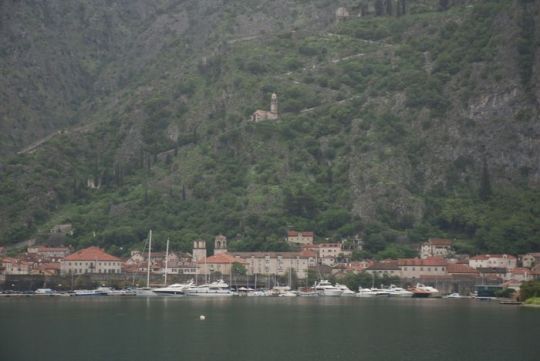
Bulgarians and Albanians
The measures necessary to Verbize the regions were undertaken through the schools and churches; “ disaffected ” Bulgarians and Albanians were driven out by thousands, their land being occupied by Serbs. This firm policy in domestic matters was paralleled by a vigorous policy in foreign affairs, directed toward strengthening Serbia against the enemy across the Danube who by the erection of the independent state of Albania had prevented the realization of Serbian hopes of access to the sea. The fine statesmanship of the premier, M. Pashitch, secured the passage by the Skupshtina of a bill authorizing the government to conclude a treaty with Montenegro forming a military, diplomatic, and customs union between the two countries. He strengthened the cordial understanding with Greece by the support he gave in her controversy with Turkey, and secured a commercial treaty which gave Serbian commerce considerable advantages in using the port of Saloniki. He concluded an agreement with Rumania for the building of a great bridge across the Danube better to improve communication and commerce between the two countries. In preparation for the struggle with Austria-Hungary which he was anxious to avoid but which seemed inevitable, he leaned more and more upon Russia. Serbia was justly regarded as the point of Russian influence in the Balkans.
Narodna Obrana
The constructive work of M. Pashitch was much impeded by the military clique whose prestige and arrogance had been largely increased by the success of the army in the Balkan wars. Army officers were most influential in the Narodna Obrana (National Union) which conducted Pan-Serbian conspiracies in Bosnia and Herzegovina with the aim of uniting them to “ Mother ” Serbia. This agitation was particularly obnoxious to the Austro-Hungarian heir-apparent, the Archduke Franz Ferdinand, who was a real friend of the Slavs of the Dual Monarchy. He was known to favor the organization of the Haps- burg dominions into a federal empire instead of a dual monarchy in order to place the Slavs upon an equal footing with the Germans and the Magyars. Hence his very efforts to conciliate the discontented Slavs within the empire made him a dangerous enemy to the Pan-Serbian cause. Moreover, he was hated by the Serbians as the instigator of the coup of 1908, whereby Bosnia and Herzegovina were annexed to Austria- Hungary, and he was known to favor for the Dual Monarchy a vigorous foreign policy which included spreading Austro- Hungarian influence in the Balkans.
0 notes
Photo

Bulgarians and Albanians
The measures necessary to Verbize the regions were undertaken through the schools and churches; “ disaffected ” Bulgarians and Albanians were driven out by thousands, their land being occupied by Serbs. This firm policy in domestic matters was paralleled by a vigorous policy in foreign affairs, directed toward strengthening Serbia against the enemy across the Danube who by the erection of the independent state of Albania had prevented the realization of Serbian hopes of access to the sea. The fine statesmanship of the premier, M. Pashitch, secured the passage by the Skupshtina of a bill authorizing the government to conclude a treaty with Montenegro forming a military, diplomatic, and customs union between the two countries. He strengthened the cordial understanding with Greece by the support he gave in her controversy with Turkey, and secured a commercial treaty which gave Serbian commerce considerable advantages in using the port of Saloniki. He concluded an agreement with Rumania for the building of a great bridge across the Danube better to improve communication and commerce between the two countries. In preparation for the struggle with Austria-Hungary which he was anxious to avoid but which seemed inevitable, he leaned more and more upon Russia. Serbia was justly regarded as the point of Russian influence in the Balkans.
Narodna Obrana
The constructive work of M. Pashitch was much impeded by the military clique whose prestige and arrogance had been largely increased by the success of the army in the Balkan wars. Army officers were most influential in the Narodna Obrana (National Union) which conducted Pan-Serbian conspiracies in Bosnia and Herzegovina with the aim of uniting them to “ Mother ” Serbia. This agitation was particularly obnoxious to the Austro-Hungarian heir-apparent, the Archduke Franz Ferdinand, who was a real friend of the Slavs of the Dual Monarchy. He was known to favor the organization of the Haps- burg dominions into a federal empire instead of a dual monarchy in order to place the Slavs upon an equal footing with the Germans and the Magyars. Hence his very efforts to conciliate the discontented Slavs within the empire made him a dangerous enemy to the Pan-Serbian cause. Moreover, he was hated by the Serbians as the instigator of the coup of 1908, whereby Bosnia and Herzegovina were annexed to Austria- Hungary, and he was known to favor for the Dual Monarchy a vigorous foreign policy which included spreading Austro- Hungarian influence in the Balkans.
0 notes
Photo
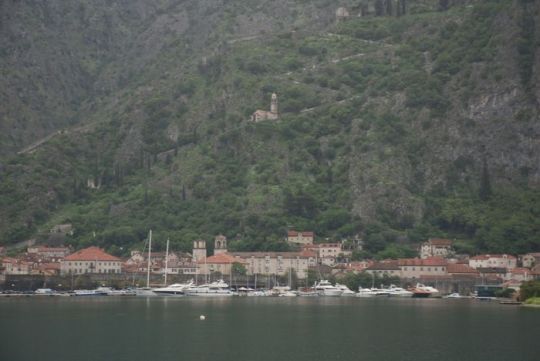
Bulgarians and Albanians
The measures necessary to Verbize the regions were undertaken through the schools and churches; “ disaffected ” Bulgarians and Albanians were driven out by thousands, their land being occupied by Serbs. This firm policy in domestic matters was paralleled by a vigorous policy in foreign affairs, directed toward strengthening Serbia against the enemy across the Danube who by the erection of the independent state of Albania had prevented the realization of Serbian hopes of access to the sea. The fine statesmanship of the premier, M. Pashitch, secured the passage by the Skupshtina of a bill authorizing the government to conclude a treaty with Montenegro forming a military, diplomatic, and customs union between the two countries. He strengthened the cordial understanding with Greece by the support he gave in her controversy with Turkey, and secured a commercial treaty which gave Serbian commerce considerable advantages in using the port of Saloniki. He concluded an agreement with Rumania for the building of a great bridge across the Danube better to improve communication and commerce between the two countries. In preparation for the struggle with Austria-Hungary which he was anxious to avoid but which seemed inevitable, he leaned more and more upon Russia. Serbia was justly regarded as the point of Russian influence in the Balkans.
Narodna Obrana
The constructive work of M. Pashitch was much impeded by the military clique whose prestige and arrogance had been largely increased by the success of the army in the Balkan wars. Army officers were most influential in the Narodna Obrana (National Union) which conducted Pan-Serbian conspiracies in Bosnia and Herzegovina with the aim of uniting them to “ Mother ” Serbia. This agitation was particularly obnoxious to the Austro-Hungarian heir-apparent, the Archduke Franz Ferdinand, who was a real friend of the Slavs of the Dual Monarchy. He was known to favor the organization of the Haps- burg dominions into a federal empire instead of a dual monarchy in order to place the Slavs upon an equal footing with the Germans and the Magyars. Hence his very efforts to conciliate the discontented Slavs within the empire made him a dangerous enemy to the Pan-Serbian cause. Moreover, he was hated by the Serbians as the instigator of the coup of 1908, whereby Bosnia and Herzegovina were annexed to Austria- Hungary, and he was known to favor for the Dual Monarchy a vigorous foreign policy which included spreading Austro- Hungarian influence in the Balkans.
0 notes
Photo
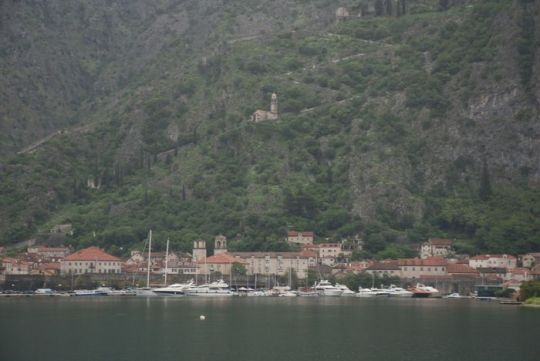
Bulgarians and Albanians
The measures necessary to Verbize the regions were undertaken through the schools and churches; “ disaffected ” Bulgarians and Albanians were driven out by thousands, their land being occupied by Serbs. This firm policy in domestic matters was paralleled by a vigorous policy in foreign affairs, directed toward strengthening Serbia against the enemy across the Danube who by the erection of the independent state of Albania had prevented the realization of Serbian hopes of access to the sea. The fine statesmanship of the premier, M. Pashitch, secured the passage by the Skupshtina of a bill authorizing the government to conclude a treaty with Montenegro forming a military, diplomatic, and customs union between the two countries. He strengthened the cordial understanding with Greece by the support he gave in her controversy with Turkey, and secured a commercial treaty which gave Serbian commerce considerable advantages in using the port of Saloniki. He concluded an agreement with Rumania for the building of a great bridge across the Danube better to improve communication and commerce between the two countries. In preparation for the struggle with Austria-Hungary which he was anxious to avoid but which seemed inevitable, he leaned more and more upon Russia. Serbia was justly regarded as the point of Russian influence in the Balkans.
Narodna Obrana
The constructive work of M. Pashitch was much impeded by the military clique whose prestige and arrogance had been largely increased by the success of the army in the Balkan wars. Army officers were most influential in the Narodna Obrana (National Union) which conducted Pan-Serbian conspiracies in Bosnia and Herzegovina with the aim of uniting them to “ Mother ” Serbia. This agitation was particularly obnoxious to the Austro-Hungarian heir-apparent, the Archduke Franz Ferdinand, who was a real friend of the Slavs of the Dual Monarchy. He was known to favor the organization of the Haps- burg dominions into a federal empire instead of a dual monarchy in order to place the Slavs upon an equal footing with the Germans and the Magyars. Hence his very efforts to conciliate the discontented Slavs within the empire made him a dangerous enemy to the Pan-Serbian cause. Moreover, he was hated by the Serbians as the instigator of the coup of 1908, whereby Bosnia and Herzegovina were annexed to Austria- Hungary, and he was known to favor for the Dual Monarchy a vigorous foreign policy which included spreading Austro- Hungarian influence in the Balkans.
0 notes
Photo
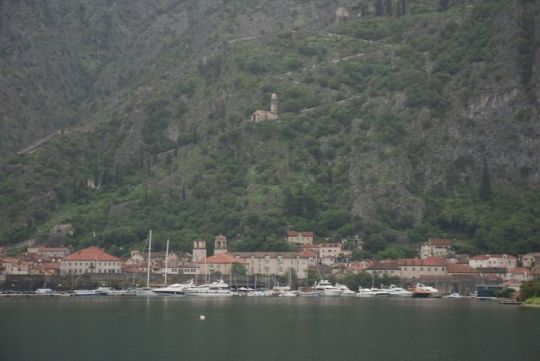
Bulgarians and Albanians
The measures necessary to Verbize the regions were undertaken through the schools and churches; “ disaffected ” Bulgarians and Albanians were driven out by thousands, their land being occupied by Serbs. This firm policy in domestic matters was paralleled by a vigorous policy in foreign affairs, directed toward strengthening Serbia against the enemy across the Danube who by the erection of the independent state of Albania had prevented the realization of Serbian hopes of access to the sea. The fine statesmanship of the premier, M. Pashitch, secured the passage by the Skupshtina of a bill authorizing the government to conclude a treaty with Montenegro forming a military, diplomatic, and customs union between the two countries. He strengthened the cordial understanding with Greece by the support he gave in her controversy with Turkey, and secured a commercial treaty which gave Serbian commerce considerable advantages in using the port of Saloniki. He concluded an agreement with Rumania for the building of a great bridge across the Danube better to improve communication and commerce between the two countries. In preparation for the struggle with Austria-Hungary which he was anxious to avoid but which seemed inevitable, he leaned more and more upon Russia. Serbia was justly regarded as the point of Russian influence in the Balkans.
Narodna Obrana
The constructive work of M. Pashitch was much impeded by the military clique whose prestige and arrogance had been largely increased by the success of the army in the Balkan wars. Army officers were most influential in the Narodna Obrana (National Union) which conducted Pan-Serbian conspiracies in Bosnia and Herzegovina with the aim of uniting them to “ Mother ” Serbia. This agitation was particularly obnoxious to the Austro-Hungarian heir-apparent, the Archduke Franz Ferdinand, who was a real friend of the Slavs of the Dual Monarchy. He was known to favor the organization of the Haps- burg dominions into a federal empire instead of a dual monarchy in order to place the Slavs upon an equal footing with the Germans and the Magyars. Hence his very efforts to conciliate the discontented Slavs within the empire made him a dangerous enemy to the Pan-Serbian cause. Moreover, he was hated by the Serbians as the instigator of the coup of 1908, whereby Bosnia and Herzegovina were annexed to Austria- Hungary, and he was known to favor for the Dual Monarchy a vigorous foreign policy which included spreading Austro- Hungarian influence in the Balkans.
0 notes
Photo

Bulgarians and Albanians
The measures necessary to Verbize the regions were undertaken through the schools and churches; “ disaffected ” Bulgarians and Albanians were driven out by thousands, their land being occupied by Serbs. This firm policy in domestic matters was paralleled by a vigorous policy in foreign affairs, directed toward strengthening Serbia against the enemy across the Danube who by the erection of the independent state of Albania had prevented the realization of Serbian hopes of access to the sea. The fine statesmanship of the premier, M. Pashitch, secured the passage by the Skupshtina of a bill authorizing the government to conclude a treaty with Montenegro forming a military, diplomatic, and customs union between the two countries. He strengthened the cordial understanding with Greece by the support he gave in her controversy with Turkey, and secured a commercial treaty which gave Serbian commerce considerable advantages in using the port of Saloniki. He concluded an agreement with Rumania for the building of a great bridge across the Danube better to improve communication and commerce between the two countries. In preparation for the struggle with Austria-Hungary which he was anxious to avoid but which seemed inevitable, he leaned more and more upon Russia. Serbia was justly regarded as the point of Russian influence in the Balkans.
Narodna Obrana
The constructive work of M. Pashitch was much impeded by the military clique whose prestige and arrogance had been largely increased by the success of the army in the Balkan wars. Army officers were most influential in the Narodna Obrana (National Union) which conducted Pan-Serbian conspiracies in Bosnia and Herzegovina with the aim of uniting them to “ Mother ” Serbia. This agitation was particularly obnoxious to the Austro-Hungarian heir-apparent, the Archduke Franz Ferdinand, who was a real friend of the Slavs of the Dual Monarchy. He was known to favor the organization of the Haps- burg dominions into a federal empire instead of a dual monarchy in order to place the Slavs upon an equal footing with the Germans and the Magyars. Hence his very efforts to conciliate the discontented Slavs within the empire made him a dangerous enemy to the Pan-Serbian cause. Moreover, he was hated by the Serbians as the instigator of the coup of 1908, whereby Bosnia and Herzegovina were annexed to Austria- Hungary, and he was known to favor for the Dual Monarchy a vigorous foreign policy which included spreading Austro- Hungarian influence in the Balkans.
0 notes